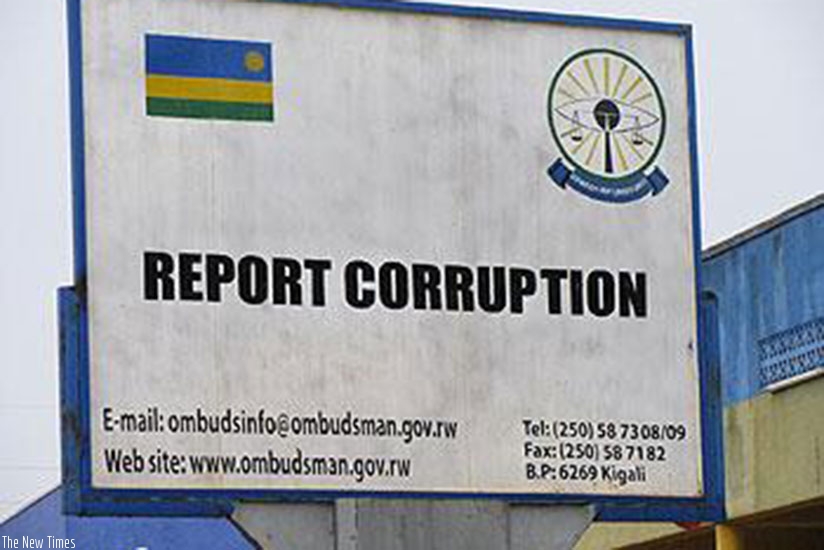Legislators on Monday passed, inprinciple, a draft amendment of the law on the protection of whistleblowers, although 14 lawmakers abstained while two voted against it.


Legislators on Monday passed, inprinciple, a draft amendment of the law on the protection of whistleblowers, although 14 lawmakers abstained while two voted against it.
The bone of contention in the draft law that was in principle supported by the entire House was the idea to reward whistleblowers.
The draft law, which was tabled before Parliament by the State Minister for Constitutional and Legal Affairs, Evode Uwizeyimana, was approved by the Cabinet Meeting of April 5.
A whistleblower is defined as a person who alerts authority about alleged dishonest or illegal activities, or misconduct occurring in a government department, a public or private organisation.
"One way of knowing if someone committed a crime or is planning on committing one, is through information gathering. That information helps when it is obtained in good time for the competent organs to follow up,” Uwizeyimana told the MPs.
He argued that it was necessary to include the protection of the whistleblower.
The 2012 law, that the proposed one seeks to replace, was vague on the different forms of harassment that could be inflicted on the whistleblower.
The reward conundrum
However, a key issue that caught the lawmakers’ attention during the tabling of the draft legislation was on rewarding of the whistleblowers, with some insisting that Rwanda’s integrity would be called into question, and that some unscrupulous individuals may end up abusing the facility.
The draft law does not outline the forms of rewards to be given to the whistleblower.
"In the 2012 law, we found gaps compared to international laws as it did not provide the rewarding of whistleblowers and that could undermine the fight against some crimes like corruption,” Uwizeyimana said.
However, MP Juvenal Nkusi said there are organs in charge of information gathering and that Government should allocate budget to so as to avoid duplication of roles.
"How are they going to be paid? Actually, the 2012 law is clear; it gives the discretion to the implementing agency to determine if there should be any form of incentive for those that come forth with valuable information,” he said.
Nkusi said if the idea of reward was put it in a law, it would encourage whistleblowers to sue whenever not paid.
"If that happens, how are you going to protect their identity?” he asked.
Other legislators suggested that financial incentive could compel some unscrupulous people to peddle falsehoods.
This argument was, however, rebuffed by Uwizeyimana, who said the law does not absolve Rwandans of playing their civic duties and clarified that the reward is not defined in terms of money and so won’t be appropriated in the National Budget.
The minister said debate on the draft law was still open as many MPs wondered why a civic obligation should be rewarded.
The lawmakers agreed to further discussions on the Bill at the committee level.
editorial@newtimes.co.rw


